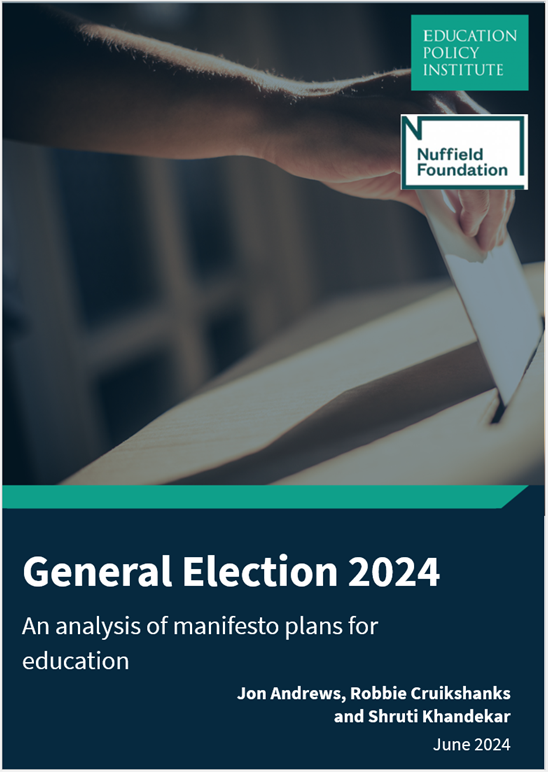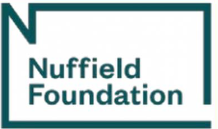Ahead of the general election on 4th July, the Education Policy Institute (EPI), funded by the Nuffield Foundation, has published an analysis of the plans for education set out in the manifestos of the main political parties in England.
This report provides an independent, evidence-based assessment of the extent to which each of the main parties have committed to addressing the biggest challenges facing education in England.
This is the second report published by EPI on education in the general election, following our report last July in which we set out the challenges facing the education system in England and made a number of calls on any incoming government.
Overall, our analysis finds that:
- There have been proposals put forward by all the main parties that address some of the challenges facing the education system. In particular, pledges by Labour and the Liberal Democrats to reform school accountability and tackle the rising issue of children’s mental health are welcome, as are pledges by the Liberal Democrats to target funding to disadvantaged children in the early years and between the ages of 16-19. A greater focus from all parties on boosting vocational education and skills is also a positive step.
- However, there is a striking lack of clear commitments to school and college funding, with neither of the two main parties committing to increasing school funding over the next Parliament. Coupled with an absence of specific pledges to better target funding towards disadvantaged children and young people, this could lead to rising inequalities.
- Commitments in the early years and in post-16 education also lack a focus on improving quality and targeting support to the most disadvantaged children and young people. All parties have committed to rolling out free early years entitlements (and Labour’s pledge to create 3,000 nurseries in schools could help to raise quality), but there is little focus on improving access for the most disadvantaged and rebuilding early intervention services.
- Overall, the manifesto commitments do not go far enough towards addressing the key challenges facing the education system. All parties should have been clearer on how they would: tackle the soaring costs of provision for children with Special Educational Needs and Disabilities (SEND), recruit and retain the education workforce our system needs (beyond headline pledges of commitments to new teachers) and address the widening disadvantage gaps across all phases, through targeted interventions and funding.
We have considered each party’s offer as a whole. We conclude that:
- The Conservative party have few commitments that seek to address the key challenges facing education and have included a number of commitments that are largely unnecessary distractions and unlikely to have any real impact on improving outcomes or tackling inequalities.
- The Labour manifesto seeks to tackle more of the immediate challenges facing the system, including through a more whole-child approach by introducing a child poverty strategy and new Young Futures Hubs. But there are still key omissions from Labour, particularly around school and college funding.
- The Liberal Democrats have the most number of commitments that are rooted in evidence, but lack detailed plans on how these commitments will be funded and delivered.
- The Green Party have made substantial commitments to additional school funding, but their proposals for ending formal assessments and abolishing Ofsted are not supported by research evidence and may lead to falling standards overall and widening attainment gaps.
- The education related commitments from Reform are somewhat limited in nature. They do not address the challenges in the education system today in any substantial way.
You can read the report in full here.

This research has been kindly funded by the Nuffield Foundation.
The Nuffield Foundation is an independent charitable trust with a mission to advance social well-being. It funds research that informs social policy, primarily in Education, Welfare, and Justice. The Nuffield Foundation is the founder and co-founder of the Nuffield Council on Bioethics, the Ada Lovelace Institute and the Nuffield Family Justice Observatory. The Foundation has funded this project, but the views expressed are those of the authors and not necessarily the Foundation. Website: www.nuffieldfoundation.org Twitter: @NuffieldFound


